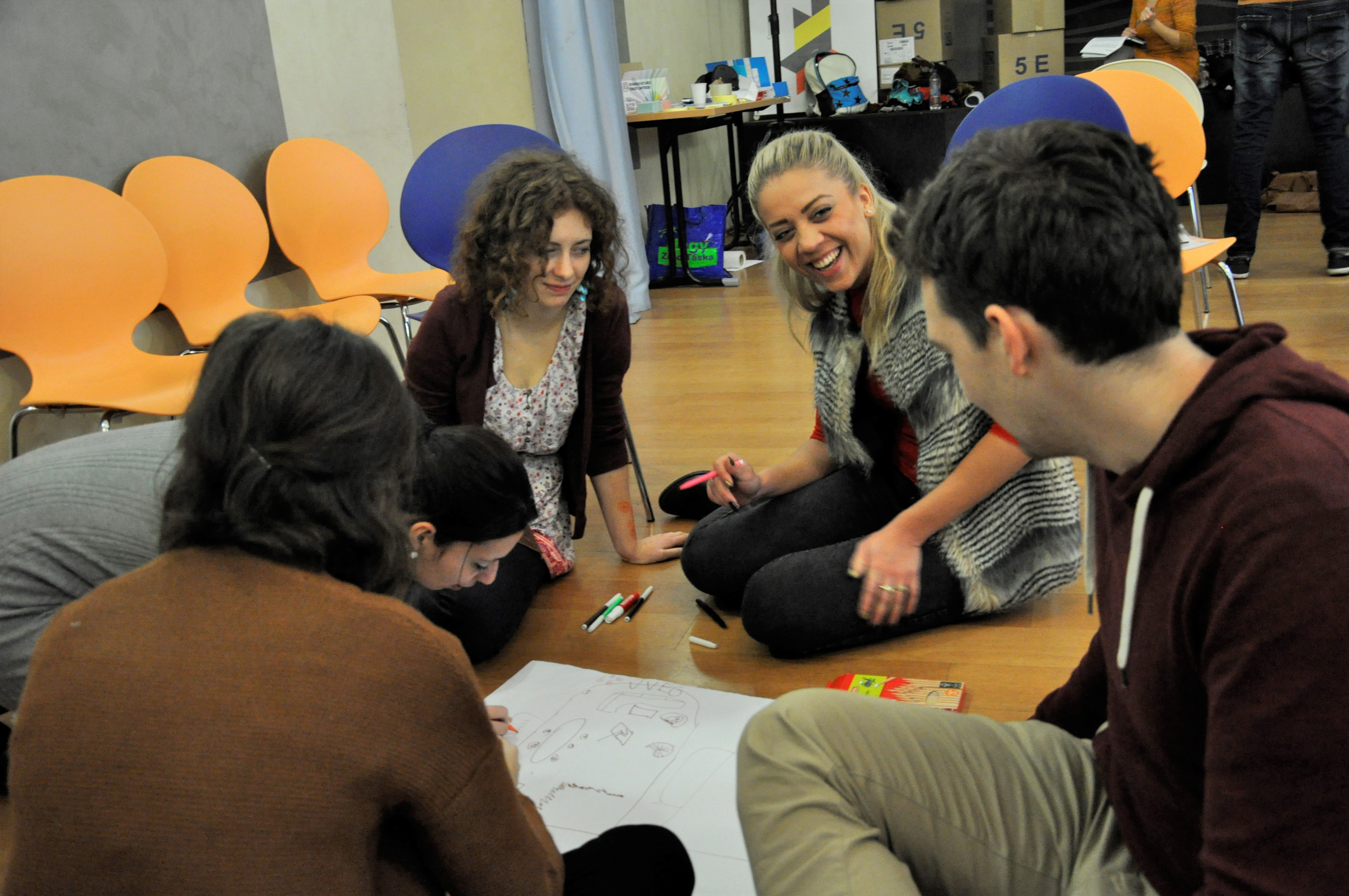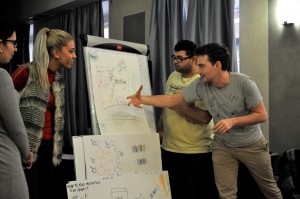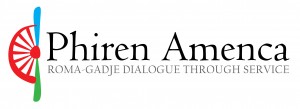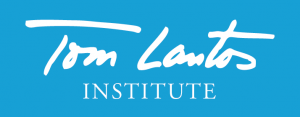* English below *
A Mashkar Kehilot projekt első képzéshétvégéjén (december 9-11.) az egymás és a projekt megismerésére fektettük a hangsúlyt. A résztvevők Bátonyterenyéről, Budapestről és Pécsről érkeztek. A pénteki programon a résztvevők elmondták, miért jelentkeztek a projektre, sokan kihangsúlyozták, hogy szeretnének többet tudni a zsidóságról és a cigányságról. Az efféle igények egy részének még aznap este eleget tettünk, amikor egy rövid és rendhagyó szombatfogadás keretei közt egyik zsidó mentorunk mesélt a zsidó vallásról.
Szombaton egy intenzív nappal folytattuk a képzést. Tisztáztuk a sztereotípiák fogalmát, hiszen a roma és zsidó résztvevők is sokszor találkozhattak sztereotip minősítésekkel. A továbbiakban egy kreativitást fejlesztő workshopon ötleteket kaptunk arra, hogy hogyan lehet gyorsan és hasznosan egy problémára megoldásokat találni, ez később hasznos lehet az akciótervek elkészítésére. Tanulhattunk a roma és zsidó kultúráról, amely a legtöbb résztvevő és mentor számára rengeteg információval szolgált. A hétvége értékelésén a legtöbben ezeket az új ismereteket említették, mint a hétvége egyik legtanulságosabb részét. Ezen az estén ellátogattunk a Gólyába is, ahol élő cigányzene koncerten és vacsorával hevertük ki a nap fáradalmait.
Az utolsó foglalkozás-blokkunk arról szólt, hogyan és miért fogjunk össze zsidók és romák. A foglalkozás végére remek hangulatú és barátságos légkörben folyt a munka, és bár a hogyanra még nem született meg a végső válasz, a következő képzésen az akciótervezésen keresztül erre fogunk koncentrálni.
///
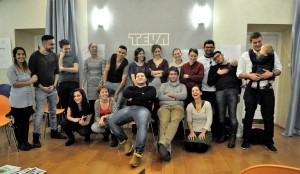 During the first weekend (9-11. December) of the Mashkar Kehilot project training programme, our main goal was to get to know each other and the project. The participants came from different parts of Hungary: Bátonyterenye, Budapest and Pécs. On Friday the participants explained the aim of their application, and many of them expressed their interests in the Jewish and Roma culture. Some of these needs were fulfilled that evening when our Jewish mentor taught us about Judaism while celebrating Shabbat.
During the first weekend (9-11. December) of the Mashkar Kehilot project training programme, our main goal was to get to know each other and the project. The participants came from different parts of Hungary: Bátonyterenye, Budapest and Pécs. On Friday the participants explained the aim of their application, and many of them expressed their interests in the Jewish and Roma culture. Some of these needs were fulfilled that evening when our Jewish mentor taught us about Judaism while celebrating Shabbat.
On Saturday we continued with an intense day of training. We defined stereotypes, because the Roma and Jewish participants are both constantly affected by them. Later during the day we gained ideas to solve problemes effectively in the framework of a creativity workshop, which could be a great tool while planning our actions.
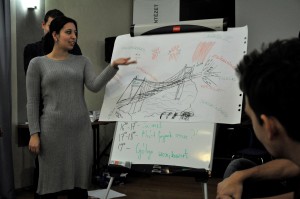
We learned about the Roma and Jewish culture as well, all the participants and mentors gaining plenty of new information. While evaluating the weekend, most of the participants mentioned this part as something new they had learnt. To relax a bit, we visited a pub called Gólya and saw a Gipsy band playing while having dinner.
In the last section of activity the question of Jewish-Roma joint work was raised: How and why should we co-operate? The work atmosphere was friendly warm, and even though the participants didn’t find the answer for the ‘how’ yet, we will concentrate on this through working on the actionplans during the next training.
Vidák Panni, mentor


